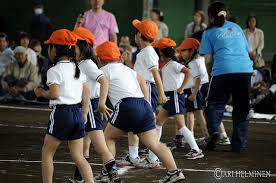
The Salvation Army is using sport to help vulnerable Scots suffering from addiction problems and homelessness.
There is a wealth of sport on the TV this weekend with the Wimbledon finals, World Cup quarter-finals and the British Grand Prix, but for many of it's as close as we come to taking any form of exercise.
In a YouGov survey commissioned by The Salvation Army, over three quarters of Scots respondents (76%) watch sport on the TV, but 64% say laziness is a barrier that stops them from playing sport or taking exercise.
And while 23% of respondents admitted to never exercising or playing sport, 85% agreed they were important pursuits.
The Salvation Army, which today celebrates 149 years since it was founded by General William Booth, believes sport is a powerful tool in helping people recover from addiction problems and homelessness. That’s a sentiment agreed by our respondents, with 81 per cent of Scots surveyed believing that vulnerable people would benefit from regular sport and exercise.
The Church and charity has a number of programmes across the UK to get people involved in sport, including a nationwide football tournament for homeless men and women, summer camps, weekly football matches, hill walking, badminton, tennis and many more.
Bobby Weir, The Salvation Army's sports ministry co-ordinator, is working with vulnerable young people and teenagers in Scotland, to show them key life skills though sport.
He said:
"Sport is a fantastic way to boost people’s confidence. It also tackles stress, helps in the treatment of people with addition problems, and brings people into their community as well as keeping people healthy. We support people with a hand up rather than a hand out and sport is a perfect tool for doing this.
"The government recommends that we take exercise at least a couple of times a week, because of the benefits to our physical and mental health. Sadly, most of us don’t do enough exercise."
Sixty-five per cent of Scots said they take part in regular exercise at least once a week but 32% of those surveyed said a lack of facilities was a barrier for people in general.

 10°C
10°C
 10°C
10°C